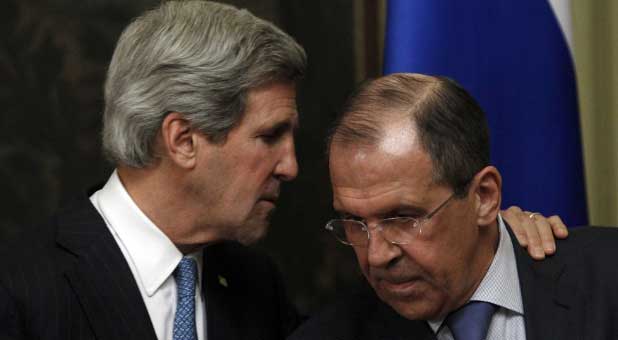Israel has warned the U.S. that Russia plans to sell advanced ground-to-air missile systems to Syria despite Western pressure on Moscow to hold off on such a move, The Wall Street Journal reported on Wednesday.
The newspaper said U.S. officials had confirmed they were analyzing the Israeli reports, but would not comment on whether they believed the sale of S-300 missile batteries was near.
No comment was immediately available from officials at the Pentagon or State Department.
Similarly, The New York Times also reported on Wednesday that the delivery of the Russian S-300 missile batteries would represent a major qualitative advancement in Syria’s air defenses. The system is regarded as highly effective and would limit the ability of the U.S. and other nations to operate over Syrian airspace or impose a no-fly zone, the Times reported.
The leaks come less than a day after U.S. officials said Secretary of State John Kerry would “make another stab” at seeing if the U.S. and Russia could work together to find a political solution to end Syria’s ongoing civil war during his visit to Moscow this week, a visit that ended on Tuesday. According to foreign reports, Israel conducted two air raids on Syria last Thursday and then again on Saturday, despite widespread reports that Syria’s air defenses are considered fearsome and extremely advanced.
The government of Syrian President Bashar al-Assad has been seeking to purchase the advanced S-300 missile batteries, which can intercept both manned aircraft and guided missiles, from Moscow for many years.
Western nations have repeatedly urged Russia to block the sale, which they argue could complicate any international intervention in Syria’s escalating civil war.
The Journal said the information provided to Washington by Israel showed that Syria had been making payments on a 2010 agreement with Moscow to buy four batteries for $900 million, including a payment made this year through Russia’s foreign-development bank, known as the VEB.
The paper said the package included six launchers and 144 operational missiles, each with a range of 125 miles (200 kilometers), with an initial shipment expected in the next three months.
While the effectiveness of Syria’s aging air force is unclear, most experts believe that its air-defense missile system, which was upgraded after a 2007 Israeli strike on a suspected nuclear site, remains quite potent.
Meanwhile, the White House said Wednesday that U.S. President Barack Obama and Israeli Prime Minister Benjamin Netanyahu had spoken by telephone about regional security issues and Middle East peace. The White House said the two leaders had agreed to continue their “close coordination.”
For the original article, visit israelhayom.com.














































